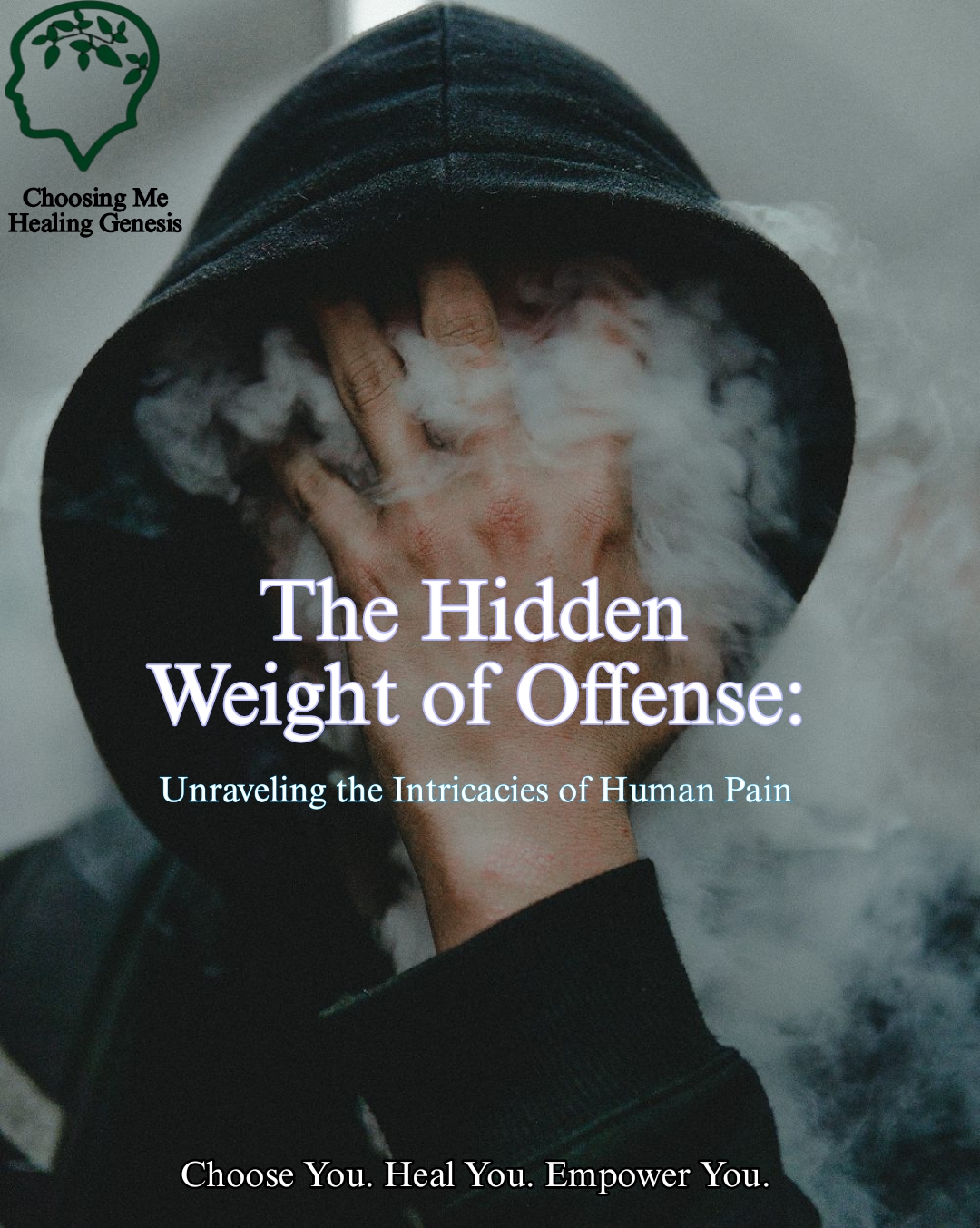The Hidden Weight of Offense: Unraveling the Intricacies of Human Pain
Offense is more than just a fleeting emotion; it’s a deeply personal experience that can shake you to your core. It’s that moment when someone’s words or actions slice through your defenses, leaving you exposed and vulnerable. We often dismiss it as a mere reaction, something to be shrugged off, but the truth is, offense digs much deeper. It roots itself in our psyche, festering in the dark corners of our mind where our deepest insecurities lie.
Imagine you’re in a room full of people, and someone says something that hits a nerve. Maybe it’s a casual remark, something they didn’t think twice about, but to you, it feels like a punch in the gut. Your face flushes, your heart races, and before you know it, a wave of anger surges through you. You want to lash out, to defend yourself, to make them understand the pain they’ve caused. But sometimes, you don’t. Sometimes, you swallow that anger, bury it deep, and try to move on.
Yet, that buried offense doesn’t disappear. It lingers, manifesting in ways you might not even realize. It can show up in your relationships, where you find yourself snapping at loved ones for reasons that seem trivial. It can affect your self-esteem, making you question your worth and second-guess your decisions. Offense, when left unchecked, has a way of coloring your perception of the world, turning you more guarded, more cynical, more distant.
Consider the example of a friend who makes a joke at your expense. Everyone laughs, including you—on the outside. But inside, something shifts. You start to pull away, a little at first, then more noticeably. You become more reserved, less willing to share, because the fear of being hurt again looms large. The offense has planted a seed of mistrust, and from that seed grows a wall that begins to separate you from others.
Then there’s the other side of the coin—the quiet offense. The one that doesn’t provoke an immediate reaction but instead settles into a slow burn. Maybe it’s a slight from a coworker, a criticism from a partner, or a snub from a friend. You tell yourself it doesn’t matter, that you’re above it, but every time you see that person or think about that moment, it’s like a tiny thorn in your side. It’s not enough to make you cry out in pain, but it’s always there, irritating, reminding you that you’ve been wounded.
This kind of offense is insidious. It seeps into your thoughts, your behaviors, your interactions with others. You become more guarded, more cautious, because somewhere deep down, you’re trying to protect yourself from being hurt again. It can make you more prone to anger, more easily offended by things that might not have bothered you before. It creates a cycle—a loop where the offense feeds into your fears and insecurities, which in turn makes you more susceptible to future offenses.
And then there’s the shame—the feeling that maybe, just maybe, you deserved the offense. That there’s something wrong with you, something that invited the hurt in the first place. This shame can be paralyzing. It keeps you from speaking out, from defending yourself, because what if they’re right? What if you really are as flawed as they made you feel?
Offense, in its many forms, is a universal experience. We’ve all felt it, and we’ve all dealt with it in our own ways. Some of us lash out, trying to reclaim our sense of power. Others withdraw, building walls to keep the world at bay. But no matter how we respond, the truth remains: offense hurts. It shakes our sense of self, our place in the world, and our relationships with others.
But there’s also power in recognizing offense for what it is—a sign that something in us needs attention. Whether it’s an old wound that’s been reopened, an insecurity that’s been triggered, or a boundary that’s been crossed, offense is a call to action. It’s an opportunity to understand ourselves better, to heal, and to grow.
In the end, offense is a part of being human. It’s messy, it’s painful, and it’s complicated. But it’s also a chance to connect with our deepest selves, to confront the things that hurt us, and to find a way to move forward—stronger, wiser, and more compassionate.


0 Comments